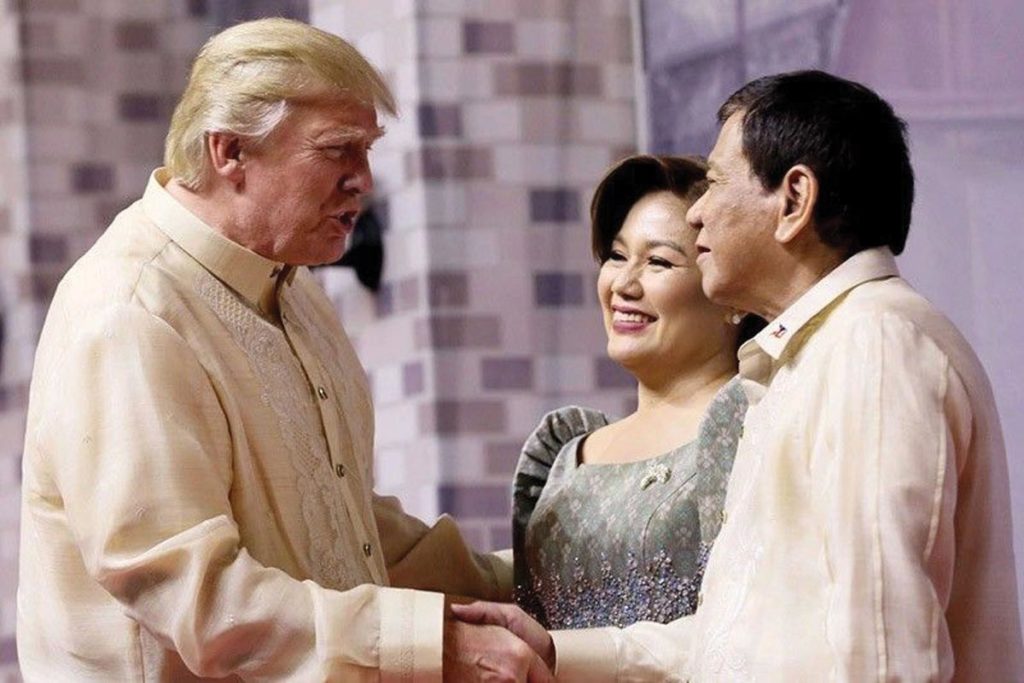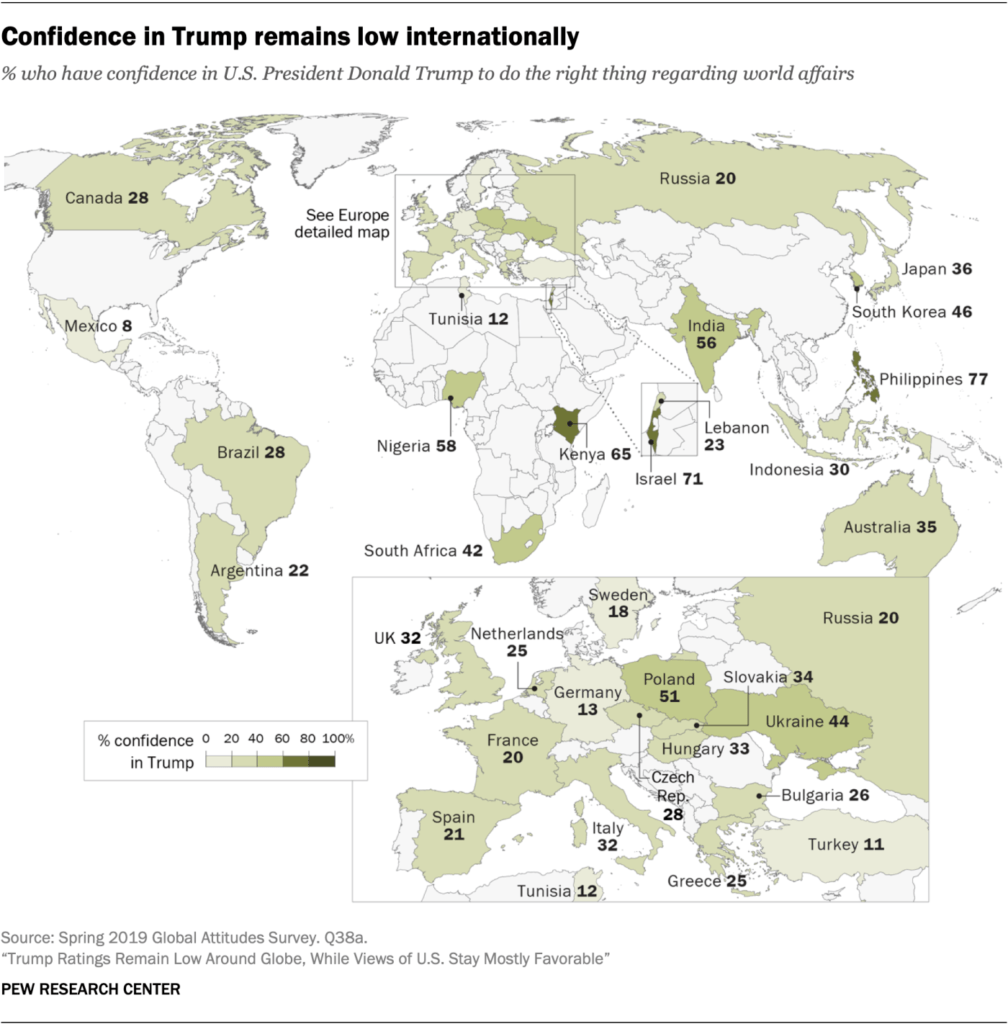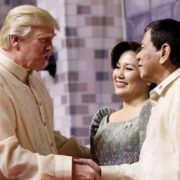
DESPITE low ratings from individuals around the world, support for U.S. President Donald Trump remains its highest in the Philippines, according to a recent Pew Research Center survey.
Results from the nonpartisan fact tank’s latest survey found that 77% of Filipinos said they are confident that Trump would do the “right thing” concerning world affairs, while 19% believed otherwise.
The Philippines showed the most positive review for the U.S. president among 32 other countries surveyed, which collectively displayed little support for him. A median of 64% respondents say they do not have confidence in Trump, while only 29% say they do.
Participants were also asked about a variety of policy decisions under the Trump administration, such as his U.S.-Mexico border wall proposal and increasing tariffs.
“A median of 68% across the nations polled say they disapprove of the U.S. increasing tariffs on imported goods; a median of 66% oppose the Trump administration’s withdrawal from international climate agreements; and 60% disapprove of Trump’s proposal to build a wall on the border with Mexico,” the survey said.
In terms of immigration, 55% of respondents said they disapproved of the administration’s plans to reduce the number of immigrants coming into the U.S.
Other countries that showed high confidence in the U.S. president were Israel (71%), Kenya (65%), Nigeria (58%) and India (56%).

Though the ratings for Trump are low in most nations, the view of the U.S. remains largely favorable at 54% compared to 38% unfavorable, the survey found. Ratings were positive in the Philippines, Poland, South Korea and Israel where “in each about eight-in-ten say they view the U.S. favorably,” Pew found. The countries that had the most negative views of the U.S. were Germany, Russia, Turkey and Mexico.
“In some countries, views of the U.S. have become more positive since 2018. This increase in favorable views of the U.S. is especially prevalent among those who favor right-wing populist parties or place themselves on the right end of the ideological spectrum,” Pew said.
A similar survey was last conducted in 2017 — the year Trump was inaugurated — which found that 22% had confidence the president would do the right thing in international affairs.
Philippine Foreign Affairs Secretary Teodoro Locsin Jr. has previously said that the Philippines and U.S. continue to share amicable ties, even with certain American lawmakers criticizing PH President Rodrigo Duterte’s human rights record and the latest U.S. Senate resolution to put sanctions on local government officials involved in the arrest and detention of opposition Senator Leila De Lima.
The Philippines also continues to view the U.S. as its most dependable, according to a Pew survey from December 2019.
“Trump is generally more popular among people on the political right. In 18 nations, those who place themselves on the right side of the ideological spectrum express more confidence in the U.S. president,” the think tank noted.
Trump and President Rodrigo Duterte have shown support for one another, with the former congratulating the latter for an “unbelievable job on the drug problem” in the country.
Philippine respondents also rated Russian President Vladimir Putin positively with 61% confidence and Chinese President Xi Jinping with 58%.
The Pew survey released this week was conducted across 33 countries from May 18 to October 2, 2019 using face-to-face interviews among 36,923 respondents. (AJPress)







There are actually few American citizens of Filipino descent that support Mr. Trump.
Filipino humorists say that one can usually-and-easily detect the Fil-Am Trumputinski fanatics by the orange hair dye and the whitening cream that they use.
Many of them think that they are not people of color and their American citizenship make them part of the Aryan-American community. They feel at home with White Supremacists groups, although they seldom talk as their funny accents reveal their ethnicity.
The Fil-Am Trump supporters do not realize that the political party they like, the GOP, means “Gutting the Old and the Poor.”